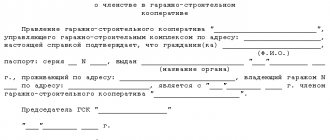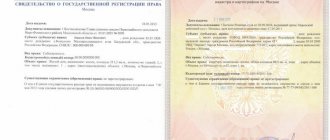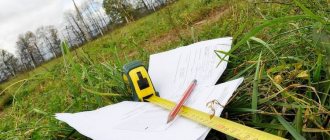Most often, non-residential premises are used by some companies to set up offices in them. These companies can rent this premises or purchase it for their permanent use. True, there are a number of premises that are either too difficult or completely impossible to register as private property. In such situations, the only option is to rent. But it is worth considering ways to register non-residential premises as private property. According to general criteria, they are divided into three types.
What documents are needed to sell non-residential premises?
On registration and confirmation of ownership rights to non-residential premises - garages. In accordance with the resolution of the Moscow Government from Moscow, in order to streamline the registration of ownership rights to non-residential premises - garages:. Approve the list of necessary documents for registration of property rights Appendix: - when purchasing leased garages; — when confirming ownership rights to permanent garages; — when registering property rights of garage-building cooperatives. Guided by the approved list of documents:.
Changes to the provisions of current laws, according to which a document confirming ownership of an apartment will no longer be issued, came into force on July 15 of this year. However, this change does not mean that property owners will no longer be able to obtain any documentary evidence of their rights. What documents will replace the certificate of ownership of the apartment, where and how can they be obtained, and will previously issued papers have to be changed? You will find answers to all questions in this article.
Document on the ownership of non-residential premises
This is the case: I bought non-residential premises of an apartment building by concluding an assignment of rights under the Agreement of Participation in Shared Construction. After which I now need to obtain ownership of this premises, but when submitting documents to Rosreestr, I was refused, allegedly the original agreement for participation in shared construction was not registered in the Unified State Register of Real Estate. Please tell me what to do in this case? If the share participation agreement was not registered, then the assignment agreement under which you bought the premises could not be registered. If the assignment agreement is registered, then Rosreestr is probably mistaken in that the DDU has not passed state registration. If the assignment is not registered and the DDU is not registered, then the first thing you need to do is contact the developer and report your problem.
Title documents for real estate objects
Applications for state registration of the transfer of termination of the buyer's right and ownership rights are submitted by both parties to the agreement. If the seller's right of ownership, economic management arose before. If the party to the transaction is a state or municipal unitary enterprise, then the owner of the property of this enterprise also applies for registration of the previously arisen right of ownership and transfer of the right. For transactions completed in the process of enforcement proceedings, both the debtor himself and the bailiff have the right to apply to the registration authority for state registration of ownership or other property rights of the debtor, transfer of termination of the debtor's rights. In addition, the bailiff applies to the registration authority to carry out state registration of the claimant's property rights in the following cases: Identification document of the applicant. A representative of an individual or legal entity additionally submits a notarized power of attorney confirming his powers or another document, in cases established by law and other legal acts;.
This is important to know: Resolution on the provision of land ownership
Please leave this field empty. Non-residential premises are a type of real estate not intended for residential use and require mandatory state registration with Rosreestr. Registration of ownership of non-residential premises is a mandatory step in any real estate transactions. This is an important procedure when registering:.
Documents and additional services for working with apartment real estate
You can become a full-fledged owner of an apartment through a mortgage or purchase. In the first case, the owner's rights will be limited until the loan is fully repaid. If we are talking about a purchase, then the owner has the right to immediately dispose of his acquisition as he sees fit. For transactions involving the purchase of an apartment and registration of real estate ownership, you will need the same documents as for purchasing a house. You will have to add to the package:
- a certificate from the Federal Migration Service about registered persons. You can also use an extract from the house register as a registration;
- technical passport, which contains data on repair work: redevelopment, major renovation of the premises;
- copy of the passport: the commission is interested in pages with the person’s personal data, as well as information about the place of registration.
Documents confirming ownership of non-residential premises
Without the appropriate documents, the owner of the apartment will not be able to fully dispose of his home. Any transaction related to the transfer of rights to real estate must be accompanied by a certain package of papers, which also includes title documents for the apartment. So, let's take a closer look at what types of title papers exist, in what cases each of them is used, and under what circumstances a signed agreement can be invalidated. The title document for an apartment is a regulatory legal act that displays information about the owner, the property and the circumstances on the basis of which the transfer of ownership of the housing was made.
The owner’s right to own any real estate in Russia must be certified by papers that comply with the established form. These are documents of title that confirm such a right that has arisen in an individual or legal entity. They are called papers confirming the right to ownership of real estate that belongs to the owner, as well as the ability to manage and use it. In addition, they describe on what basis the owner of the property received such a right and the document with which it is registered.
Registration of your land
When registering a land plot you will definitely need:
- to write an application;
- provide an agreement on the basis of which the registration of property is started. This role can be played by an exchange or sale agreement, a received deed of gift, a court order or inheritance documentation;
- pay the fee and receive a receipt;
- prepare cadastral documents: plan, extract, passport, map;
- obtain a certificate from the land survey;
- find out the nominal value;
- provide a technical passport for gasification, electrification and water supply;
- visit the land committee to obtain a document with information about the copyright holder.
REGISTRATION OF OWNERSHIP FOR NON-RESIDENTIAL PREMISES, BUILDINGS, STRUCTURES
Information about existing rights to real estate objects and data about these objects are contained in the Unified State Register of Real Estate (USRN, formerly called EGRP). The basis for making an entry in the Unified State Register of Real Estate is the state registration of ownership of real estate. Therefore, when changing the owner, changing his personal data or changing information about the property, it is necessary to go through the state registration procedure with the Federal Service for State Registration, Cadastre and Cartography (Rosreestr).
From the above it follows that it is necessary to register property rights when purchasing, dividing, donating or inheriting
non-residential (commercial) real estate. Also, state registration of property rights is required when rebuilding, remodeling or reconstructing non-residential premises, buildings, structures. Prices and procedure for supporting commercial real estate transactions HERE.
The emergence of ownership rights to newly created buildings is associated with the moment of state registration (Article 219 of the Civil Code of the Russian Federation). This right belongs to the owner of the plot under the house, unless otherwise provided by law. The owner of the building and the land underneath it has an obligation to simultaneously transfer rights to both objects. If this requirement is violated, the transaction will be invalid.
According to Art. 40 of Federal Law No. 218-FZ regulates the features of cadastral registration and registration of ownership of newly created buildings and structures: - these procedures are carried out simultaneously in relation to the building and the plot under it, if the rights to the land have not previously been recorded in the Unified State Register of Real Estate; — when registering rights to a building, cadastral registration of all premises in it can be carried out simultaneously.
Cadastral registration and registration of buildings and structures is carried out on the basis of a commissioning permit and a title document for the plot of land under the specified objects. If the construction of a building did not require obtaining a building permit, its cadastral registration and registration will be carried out on the basis of the technical plan and title documents for the land.
Many individuals and legal entities own real estate acquired before 1998, including under privatization plans, including the property of factories, agricultural cooperatives, fish farms and other enterprises. During the period of registration of rights to such property in the Russian Federation, there was no single body carrying out state registration of rights. In addition, not all real estate transactions were subject to registration, so in such situations the concept of “previously arising right” is used.
Today, a previously arisen right that is recognized as actually existing in accordance with the Federal Law “On State Registration of Real Estate”, in the event of an application by the copyright holder for its state registration, is not always possible to confirm in accordance with the requirements of the said law. In such a situation, only a professional lawyer specializing in real estate transactions can help you. HERE you will learn how the transaction support process occurs.
The cost of registering an apartment for ownership
Other legislative acts single out administrative decisions as such a basis.
So, how to register ownership of an apartment? Upon the occurrence of appropriate grounds for citizens or legal entities. persons must contact the registration agency. Today, the law designates the Registration Chamber as such an institution.
- Persons with relevant documents must contact the Registration Chamber. You can also submit documents to register ownership of an apartment at the MFC (multifunctional center).
- The authorized body does not consider the application and documents for long; the processing time is 10–12 days.
- Based on the results of the review, if the ownership is legal, the persons are entered into the register as owners.
When this right is registered, then after that by all persons in all institutions, regardless of the form of ownership, and by all citizens, the right is recognized as indisputable and there is no need to worry about it. In a situation of violation of this power, the state guarantees its protection in the person of law enforcement agencies and the court.
However, before you register ownership of an apartment, you need to decide on some nuances. So, for this you will need certain documents, legal reasons, and so on. Let's look at exactly what circumstances and documents will be needed, how many days it will take, and how to register ownership of an apartment in more detail.
So, how much does it cost to decorate an apartment? There is a state fee for registering ownership of real estate. However, it is not the only expense item.
So, the total cost includes:
- 2 thousand rubles – duty;
- 200 rubles – fee for cadastral extract;
- 800 rubles – fee for technical documentation.
Depending on the characteristics of the apartment itself, the amount of expenses can be much higher. So, if an illegal redevelopment was carried out in the apartment, then before registration it is necessary to legalize it and make appropriate changes to the documentation. As a rule, legalizing redevelopment costs 40–60 thousand rubles.
As for payment, only the fee needs to be certified. So, when submitting an application and the necessary documentation, an employee of the registration authority must provide a receipt or other payment document certifying that the fee has been paid.
For this reason, it is better to pay it through a bank. After all, when paying through Internet banking or electronic payment systems, a document certifying the fact of payment is issued in electronic form. And government agencies rarely accept documents that are not certified by the seal of the paying agent.
If for any reason the registration of property rights is refused, the amount of the state duty will not be refunded. When resubmitting an application, it is paid again. So it’s better to immediately make sure that the documents are complete and pay the fee at the very end or a couple of days in advance.
After the registration authority has registered the title of property, the owners can begin to exercise their rights to use and dispose of the apartment. Thus, the right to use an apartment or other residential premises is certified in law by appropriate registration or, as it is called, registration.
When the owner certifies his authority on the issue under consideration, he will be able to:
- register in the appropriate residential premises;
- register other persons in it at your own discretion.
- contact the passport office at the location of the apartment;
- provide an application in the prescribed form;
- submit a title document;
- provide an extract on registration of ownership;
- a certificate from the housing organization about the circle of persons already registered in the corresponding apartment.
When registering third people, the owner of the registered house who registered his authority only needs to provide them with his consent. Based on such consent and documents for the apartment, the passport office will register third parties.
In general, the legal title of property is the only indisputable basis for registration. All other persons, besides the owners, cannot do this without his consent.
Is it possible to refuse registration? Although the procedure itself is exclusively administrative, having formal significance for government agencies and the owners themselves, it is mandatory.
The legal nature of the procedure for legitimizing the ownership of an apartment does not have any specific features or legal significance, however, evaluating the procedure separately, we can highlight:
- the moment of transfer of ownership in government bodies, as well as in court, is considered to be the date indicated in the registration extract;
- information about a citizen’s right of ownership of a property is entered into a unified database;
- information about the owner is reflected in several public sources of information, in particular, the cadastral authority, since everyone should know about the owner;
- if there are encumbrances on the property, the registering authority takes this into account at the time of issuing the extract;
- for re-registration, not only the presence of the corresponding authority is taken into account, but also its characteristics.
So, if a person is the owner of only part of this or that property, then the registering authority will indicate this fact in the extract. All persons who have legal title to the remaining parts of the apartment will also be taken into account.
As for publicity, first of all, information about the owners is reflected in the cadastral map. Since everyone has the right to find out about the owner, information about the owner is issued in the form of a cadastral extract to any interested person upon request.
In this way, the main goal of registering this authority is achieved - recognition and protection. After all, the more information about the owner, the less the risk of an attack on the property.
Any legal real estate in Russia is subject to registration in the Unified State Register of Real Estate (USRN). This database is maintained by Rosreestr, so for registration you need to contact this department. With the advent of Multifunctional Centers (MFC), this process has become much easier.
To register real estate acquired as a result of a simple transaction (the owner was alone, without a spouse or children), it is enough to provide the registrar with a regular purchase and sale agreement signed by both parties, identification documents, title documents for the property and a transfer deed.
If there are several owners of an apartment, house or land plot, then registration of real estate transactions in this case takes place at the notary, who certifies them. The purchase and sale agreement is printed on a special form. This procedure guarantees the purity of the transaction, since the notary makes all the necessary inquiries before you sign the contract.
If the seller has a spouse, then his consent, certified by a notary, is required to conclude the transaction. If you have children, you must obtain permission from the guardianship authorities.
If housing was purchased on the primary market, but the house has not yet been put into operation, then a special procedure for registering ownership of an apartment in a new building is applied. You can read about this in detail in our feature article. I will only say that registration of rights to an unfinished construction project is possible in court.
Housing is not always bought. There are cases when it is inherited or received as a gift from relatives. In the first case, the basis for registering property rights is a certificate of inheritance, which is issued by a notary, and in the second case, a deed of gift.
The deed of gift must be drawn up in accordance with all the rules with a description of the object being donated. It is not necessary to register it with a notary. In the case of a gift, it is important to notify the tax office before April 30 of the following year that the property was donated to a relative and attach documents confirming the relationship.
We suggest you read: Can a case be opened against a borrower due to loan debts?
Registration of ownership of real estate accepted as a gift is carried out according to general rules. Keep in mind that the right to use the object arises from the moment of signing the contract and the transfer act, and the right of ownership with the possibility of disposal - from the moment of registration in the Unified State Register.
Having prepared the necessary package of documents, the next step is to contact the local branch of Rosreestr.
The employee will accept your application, check the presence of all necessary documents, certify their copies and issue you a receipt for receipt of the documents.
If any certificates are missing, you will be able to receive instructions on when, where and within what time frame they need to be obtained.
Today you have the opportunity to submit all documents for registration in three main ways:
- in person by contacting the relevant branch of Rosreestr;
- through a representative who must have a notarized power of attorney to perform the specified actions of transferring documents for registration;
- by registered mail - the most risky method, because if the documents are missing any certificates and forms, you will only be able to find out about this from a document notifying you that registration has been suspended.
When all documents are accepted, Rosreestr employees carry out an appropriate check on them. They must ensure that the documents submitted are genuine and that all information provided therein is correct.
Required documents
To begin the procedure for registering ownership of real estate, you must have title documents. Such documents can be: a purchase and sale agreement, an agreement on the assignment of the right of claim, a certificate of the right to inheritance. If this is a newly constructed building, then it is necessary to have title documents for the land, construction permits and commissioning permits. The complete list of documents required for submission directly depends on the specific situation. You can clarify the list of required documents by contacting Rosreestr for advice.
Additional documents may also be required, which may include, in particular, a cadastral passport for a premises, building, structure, which can be obtained from the Cadastral Chamber if you have the necessary title documents. The amount of payment for providing a cadastral passport depends on the volume of information provided and the applicant - an individual or legal entity. Obtaining other additional documents depends on the specific situation and may require contacting KIO, FI, PIB (GUiON), BTI.
It is important to remember that incorrectly drawn up documents may raise doubts about their authenticity and reliability among the registration authorities, which will lead to the suspension of the registration procedure. If these reasons are not eliminated within the prescribed period, the registration authority is obliged to make a decision to refuse registration of property rights.
Documents for property registration
As in most cases, the first procedure that needs to be dealt with in order to register real estate is the collection and preparation of the necessary set of documents, without which your application to Rosreestr will be simply pointless.
For each type of real estate for which you need to register the right, you will need different sets of documents.
Thus, the most common case is registration of the right to an apartment. The documents required for this procedure include:
- documents of all future owners or one owner, identifying the citizen;
- document – the basis for the emergence of ownership rights. This can be any document of title, for example, a contract of sale, gift, exchange, certificate of inheritance, etc. This document must clearly and definitely indicate the reasons why the real estate should be registered as your property, due to what circumstances this happens .
- technical documentation, which can be obtained from the BTI. This includes a technical passport of the object, a cadastral passport, a floor plan of the entire building and an explication of the apartment.
- a receipt confirming payment of the state fee.
These are the most basic documents for real estate; when registering rights, keep in mind that depending on the specific situation, it will be necessary to add other certificates and documents to this list.
In the event that you need to register ownership of a house, the main necessary documents will be:
- identity documents
- cadastral passport of the object.
If the house is new, just built, you must bring the following to Rosreestr:
- documents confirming your rights to the land plot on which the house is located,
- as well as documents certifying the fact of construction, for example, permission to commission.
If the house is inherited by you, do not forget about the Certificate confirming the right to inheritance and the agreement on the division of property if there are several heirs.
When purchasing a house, you must provide the seller's title documents and the purchase and sale agreement, according to which the house is transferred to you.
To register land plots, collect a package of documents that will include: an application, a receipt for payment of the state duty, a document - the basis for registering land ownership, as well as cadastral documents that are issued after completing the land surveying procedure and registration with the cadastral chamber.
Be careful, all title documents must be submitted in triplicate, all of which are originals, the rest - in the original and with an additional copy, which is certified by the registrar at the time of acceptance of the application and the entire package of documents.
So, what documents are needed to register ownership of an apartment? The legislation does not establish an exact list of documents to be completed.
- title documentation;
- technical documentation;
- reference documentation.
Each of these groups is represented by a variety of papers drawn up in various institutions for a new apartment after purchase. What documents are needed is determined based on the specifics of each individual situation.
The necessary title documents confirm that the person concerned can fully dispose of this or that property in any legal way.
- civil transactions;
- administrative decisions;
- court decisions.
- purchase and sale (acquisition);
- deed of gift;
- will and so on.
Administrative decisions are decisions of authorized state bodies, according to which certain state objects. real estate is transferred to the disposal of private individuals. In turn, court decisions mean that the authority of the order was proven and established during the trial.
Technical documentation is necessary due to the specific characteristics of the apartment as a real estate property. Thus, the legislation establishes special requirements for residential premises. Technical documentation certifies that the characteristics of the apartment comply with the specified requirements.
- cadastral extract;
- those. plan;
- conclusions of authorized bodies (housing inspection, sanitary supervision, etc.).
In turn, reference documentation (instead of a certificate of ownership, an extract of ownership of the apartment is issued) provides information of a temporary nature. Through such documentation, it will be possible to certify related powers, for example, the right to reside in housing.
However, reference documentation has a limited validity period, usually several days or months. Technical and cadastral documentation is valid for several years. And title documents are not limited by this period. Thus, when collecting and submitting documents to the Registration Chamber, it is necessary to take into account these circumstances.
Registration of real estate rights in Rosreestr has always been a troublesome matter. The fact is that previously contracts were also subject to registration, so strict requirements were imposed on their content, especially if any government subsidies were used in the calculations.
Today, the registration procedure is extremely simplified.
It is especially easy to register real estate (even commercial) if there is an MFC in your locality. There are 3 legally permitted methods for submitting documents to Rosreestr.
This is the most budget-friendly method, since you only need to pay a state fee. However, when contacting in person you will have to spend a lot of time and nerves. What you need to independently submit documents for real estate registration will be discussed in the next section.
We invite you to read: Falsification of documents: Article 327 of the Criminal Code of the Russian Federation. Responsibility for falsification of documents. Types of document falsification
A third party can also register ownership of real estate on your behalf if there is a notarized power of attorney for the right to perform such actions. Any acquaintance of yours or a lawyer engaged in similar activities on a professional basis can act as such an assistant.
I would like to note that today many law firms provide similar services for a moderate fee. I'll talk about some of them later. The advantage of this method is not only that you do not waste your time, but also in the quality of collecting documents, which eliminates the possibility of refusal of registration.
The law allows you to send documents by registered mail. In this case, you need to be very careful and make a complete inventory of all attached documents.
Since in this case the time frame for registering real estate increases, and the risk of refusal of registration due to errors in paperwork increases, it is rarely used, only when it is impossible to use other methods.
The procedure for registering property rights
Clause 2 of Art. 333.18 of the Tax Code of the Russian Federation provides that, if several payers who are not entitled to the benefits established by Ch. 25.3 “State duty”, state duty is paid by payers in equal shares. That is, if several individuals wish to register property rights, then the state duty is divided into equal shares in accordance with the number of participants. If the participants are an individual and a legal entity, then each of them pays 50% of the corresponding amount of the state duty.
This is important to know: Compensation to the owner for emergency or dilapidated housing
State registration of ownership of non-residential premises is carried out upon application to the Rosreestr authority at the location of the property. The application must be accompanied by a receipt for payment of the state duty and documents necessary for registering property rights.
In addition to submitting an application for registration in person by an individual or legal entity or their representatives, it is possible to submit documents for registration of rights by mail (in this case, the application and contracts of transactions must be notarized), as well as through a notary who certified the transaction.
The result of the state registration is the making of inscriptions on title documents and the issuance of certificates of state registration of rights - Extracts from the Unified State Register of Real Estate (USRN).
If, during the legal examination, it is discovered that the submitted package of documents is incomplete, or there are errors in the submitted documents, you will be denied registration of property rights. In this case, you will have to prepare a new package of necessary documents and again submit an application to Rosreestr to register ownership of the property.
According to Russian legislation, the registration period for real estate rights is 30 days.
You can register ownership of non-residential premises (building, structure) either independently or through an authorized representative. The best choice would be to entrust this procedure to an experienced real estate lawyer - this will protect you from mistakes, due to which you can be denied registration and waste a lot of time and nerves.
You can familiarize yourself with the cost of services for registering property rights in a legal entity in the appropriate section.
Judicial practice in recent years indicates an increase in disputes related to refusals of local governments to provide supporting documents, which in most cases are necessary, because documentation on the transfer of objects into ownership was not properly drawn up, contracts and transactions were not registered, data on objects were not entered into the Unified State Register of Rights (USRE), technical documentation was not updated, if technical and cadastral registration was carried out at all, etc. At the same time, rights to objects after privatization could be transferred to other persons more than once without proper registration of transactions. Trying to register a previously arisen right, potential right holders sometimes provide the registration authority with all the documents that have accumulated over the years, often contradictory, in relation to such an object, which significantly complicates the situation - the refusal to register a right can only be appealed in court.
State registration of a previously arisen right is also necessary today because the absence in the Unified State Register of Information about the copyright holder of a real estate property is grounds for suspending any registration actions on the property (Articles 26, 69 of the Federal Law “On State Registration of Real Estate” N 218-FZ dated 13.07 .2015). According to Art. 1 of this Law, state registration is the only evidence of the existence of a registered right.
Thus, if you intend to transfer your right to a new person, encumber (limit) your right (for example, pledge it), or make a transaction with real estate, you need to bring the ownership documents for the object into compliance with the requirements of current legislation.
Registration of property rights in the MFC: step-by-step instructions
- Start collecting the necessary documents. Variations depend on the type of property.
- Make an appointment or go to the nearest MFC branch and take an electronic queue coupon.
- Together with your employee, fill out an application for state cadastral registration of real estate.
- Pay the state fee at the MFC using the terminal.
- The specialist will issue a receipt confirming the acceptance of documents, using the number of which you can track the result of the application.
What documents are needed to register ownership of an apartment?
- Application for registration (sample)
- Original passport of the applicant if the person is under 14 years old - birth certificate
- Receipt - check for payment of state duty (payable on the spot)
- Grounds for starting the procedure (sale and purchase agreements, inheritance, donations, etc.)
If on your first visit to the center the package of documents is not complete, do not worry; you have the right to submit them separately.
Amount of state duty in 2021
- A plot of land next to a residential building (share) - 100 rubles, land for farmland - 50 rubles, land for further construction of buildings on it - 350 rubles.
- Garage space - 500 rub.
- Re-issuance of an extract from the Unified State Register (USR) - 350 rubles
If you are entering into an inheritance, be prepared to separately pay 0.3% of the cadastral value of the property, but not more than 100 thousand rubles for close relatives, or 0.6% for third parties, not more than 1 million rubles.
Legal entities and organizations:
- Apartment (house, dacha, estate, estate) - 22 thousand rubles
- Land - 15 thousand rubles
- Industrial and non-residential premises - 22 thousand rubles
- Duplicate USRN (USRE) - 1 thousand rubles
State registration of non-residential premises
All existing non-residential premises must be registered, that is, put on the cadastral register.
This is a way to legitimize non-residential premises and obtain ownership of non-residential premises.
During the registration process, the premises are measured, a cadastral number is assigned to it, and the owner is issued a cadastral passport. The issued document indicates its main characteristics.
New non-residential premises may appear as a result:
- construction of a new facility;
- transfer from non-residential premises;
- discharge from a larger one;
- or combining several smaller ones.
For any of these actions, it is necessary to obtain permission in advance, and then register the non-residential premises on the cadastral register.
You can receive a cadastral number of a non-residential premises at the address as a result of registering ownership of a non-residential premises within ten days from the date of application. This happens for free.
Registration of ownership
The right of ownership and rights of the owner of non-residential premises do not arise automatically.
After its appearance or acquisition, it is necessary to register the emergence or change of ownership.
This also applies to the rights of owners of non-residential premises in an apartment building.
Separate registration has been required since 1998, after Federal Law No. 122-FZ of June 21, 1997 came into force. If the building (or part of it) was received earlier, it is carried out at will.
Confirmation of ownership is required when carrying out various actions with real estate: sales, wills, donations.
But in some cases, you will have to prove your right to own the premises in court. Let's consider both options.
If you have a document confirming ownership, you must contact Rosreestr for registration.
It can be done:
- in its territorial office;
- through the MFC;
- through the Internet;
- by mail;
- through a trusted person.
If the premises are converted from another, you will need to present permitting documents.
If the owner of a previously existing premises has changed, one of the following documents can confirm this:
- contract of sale;
- gift agreement;
- will.
Certificate
Within a week after the application, the property owner receives a certificate of ownership of the non-residential premises.
When using the services of the MFC or post office, the registration period for non-residential premises can be extended, usually up to two weeks.
If there are several owners, each of them receives their own copy..
According to the 22nd subparagraph of Article 333.33, the registration fee is 2 thousand for individuals and 22 thousand for legal entities. If there are several owners, this amount is divided equally between them. If among them there are both organizations and citizens, each pays the appropriate share of “their” state duty.
It is important to know: What is common joint property?
On recognition of property rights
If there are any disputes regarding the premises or there is no title document, registering ownership of it will be much more difficult. You will have to seek recognition of this right in court.
The reasons for difficulties in recognizing ownership of non-residential premises may be different, for example:
- The developer does not formalize the ownership rights of the shareholder or shareholders.
- When purchasing non-residential premises (for example, a garage), payments are actually made by a person who is not included in the list of members of the cooperative.
- The necessary documents were not completed or were lost.
- The premises were transferred to someone as a result of a transaction that violates the law and therefore can be challenged.
- And so on.
In these cases, it is necessary to draw up a statement of claim and submit it to the civil court at the location of the premises.
The subject of the claim will be the right of ownership of real estate, the basis - those circumstances that can confirm the legality of this right.
Depending on the circumstances, they may serve:
- equity participation agreement;
- acceptance certificate for the contract;
- additional agreement to the contract;
- documents that can confirm that financial obligations have been fulfilled (for example, receipts);
- various certificates;
- and others.
As a rule, the proceedings last about one and a half to two months . If the decision is made in favor of the plaintiff, he can begin registering his rights to the property. The court's decision will serve as confirmation.
Registration of rights to non-residential real estate objects and transactions with them
Home / Legal support of real estate transactions / Registration of rights to non-residential real estate objects and transactions with them
- Registration of rights to residential real estate and transactions with them
- Registration of rights to land plots and transactions with them
- Coordination of redevelopments
- Obtaining an extract from the Unified State Register, BTI documents
- Price list of real estate services
The Civil Code of the Russian Federation abandoned the term “non-residential premises” and replaced it with the term “buildings, structures”.
It should be noted that the concept of “non-residential premises” retains its meaning to distinguish it from the concept of “residential premises”. Thus, buildings, structures, structures and other premises that are not included in the housing stock and intended for production, administrative, social, educational, cultural and other purposes are classified as non-residential premises and are objects of real estate of the non-residential stock.
A special feature of the legal regulation of non-residential objects is that transactions entailing the alienation of non-residential objects are the basis for registration of the right, since the agreement itself is not subject to state registration, but the transfer of ownership of the property is subject to registration.
It is important to understand that in the case of the purchase and sale of non-residential property, exchange of non-residential properties, contribution to the authorized capital, equity participation in construction, investment of non-residential properties, the ownership rights to these real estate objects are subject to registration. Let's clarify, acc. from paragraph 1 of Art. 131 of the Civil Code of the Russian Federation, the right of ownership and other real rights to real estate, restrictions on these rights, their occurrence, transfer and termination are subject to state registration, regardless of what transaction was the basis for these rights. Also, some agreements are subject to state registration: a mortgage agreement (clause 3 of Article 339 of the Civil Code of the Russian Federation), an agreement for the sale of an enterprise (clause 3 of Article 560 of the Civil Code of the Russian Federation), an agreement for the donation of real estate (clause 3 of Article 574 of the Civil Code of the Russian Federation), a real estate lease agreement (clause 2 of Article 609 of the Civil Code of the Russian Federation), a lease agreement for a building or structure, if the agreement is concluded for a period of at least 1 year (clause 2 of Article 651 of the Civil Code of the Russian Federation).
International Law Firm
ready to provide assistance and assistance:
— Registration of previously arisen rights to non-residential premises; — Registration of rights to garages, parking spaces; — Making changes to the Unified State Register of Real Estate when transferring premises from residential to non-residential; — Registration of the right to a newly created structure; — Registration of rights based on a court decision; — Registration of purchase and sale transactions; — Registration of lease transactions (conclusion, termination of contracts, additional agreements to contracts, sublease); — Registration of mortgage (pledge) transactions, repayment of mortgage records; — City rights, economic management (operational management).
Privatization, buyout from the city
— Registration of rights to buildings (premises) purchased from the city until January 31, 1998; — Registration of rights to buildings (premises) purchased from the city after January 31, 1998; — Registration of rights to a completed construction site, created on the basis of an unfinished construction project purchased from the city until 08/31/1998; — Registration of rights to a completed construction site, created on the basis of an unfinished construction project purchased from the city after 08/31/1998; — Registration of rights to real estate of a joint-stock company arising on the basis of a privatization plan.
Registration of rights to an unfinished (completed) construction project
— Registration of rights to an object of new construction, reconstruction, complex overhaul under an investment contract with the Moscow Government; — Registration of rights to a new construction project created by the investor in the prescribed manner. — Registration of rights to the object of reconstruction, complex overhaul, created by the investor in the prescribed manner. — Making a record in the Unified State Register of the termination of the right upon liquidation of the object.
Transactions with alienation
— Registration of rights to real estate that arose on the basis of contracts (purchase and sale, barter, donation) — Registration of rights to real estate that arose on the basis of a compensation agreement. — Registration of the right when adding real estate to the authorized capital of an existing organization — Registration of the right when adding real estate to the authorized capital of a newly created organization — Registration of the organization’s right to property arising as a result of the reorganization of a legal entity (merger, accession, transformation) — Registration of the right of an organization, arising as a result of reorganization of a legal entity (division, spin-off)
Special cases
— Making changes to the Unified State Register of Real Estate when transferring premises from residential to non-residential; — Registration of rights to newly created structures; — Registration of rights based on a court decision; — Registration of rights based on the results of auctions based on a court decision; — Registration of previously arisen rights; — Garages, parking spaces; — Registration of ownership rights of cooperative members to parking spaces or boxes in garages or garage-building cooperatives; — Registration of ownership rights of the heirs of a deceased member of the cooperative for parking spaces or boxes in garages or garage-building cooperatives; — Registration of ownership rights of individuals to parking spaces or boxes in garages and garage-building cooperatives on the basis of contracts (purchase and sale, barter, donation, compensation); — Registration of legal entities’ ownership of parking spaces or boxes in garages and garage-building cooperatives on the basis of contracts (purchase and sale, compensation, barter, donation); — Mortgage, trust management, gratuitous use, easement.
Registration of mortgage agreements
— Redemption of the mortgage registration record in the Unified State Register of Real Estate; — Registration of the transfer of buildings, premises, structures into trust management; — Registration of easement.
Registration of a lease agreement
— Registration of sublease agreements; — Registration of changes to lease agreements (sublease); — Registration of termination (termination) of lease (sublease) agreements; — Registration of lease agreements (city municipal property).
NOTE: We do not exclude the possibility of cooperation with you to complete individual stages of the work.
The International Law Company, represented by experienced real estate specialists, is ready to begin resolving complex and extraordinary issues! We guarantee full support: from providing a free consultation to obtaining a certificate of entitlement.
If you have any questions, we are ready to answer them!
Our company’s specialists will assist in registering a real estate transaction in the shortest possible time, with the lowest financial costs and will help to anticipate and avoid possible risks.
Registration of non-residential premises on the cadastral register
Since January 1, 2013, Rosreestr has also been involved in cadastral registration of residential and non-residential premises.
As with registering property rights, you can submit an application in person, through a representative, the MFC, the Rosreestr website or by mail.
The application will need to provide the following information::
- Last name, first name and patronymic of the applicant, as well as his passport details.
- The same information about the authorized person, if he is responsible for filling it out.
- Information about the premises that allows it to be accurately identified. These include address, area, location on the floor of a multi-story building, and others like that.
- Date of completion.
It must be accompanied by:
- Passport or passports.
- Technical passport for the apartment.
- Title documents for real estate.
- If necessary, a power of attorney.
If there is no technical passport for the apartment, you will have to apply for it at the BTI.
It indicates the layout, load-bearing walls and other similar information.
Information about all changes must be included in the technical passport (and some of them require prior permission).
After submitting the application, the information specified in it is checked.
Then, if nothing prevents this, the premises are registered and assigned a cadastral number.
A cadastral passport is issued for the property.
It contains various information such as:
- cadastral number;
- address;
- square;
- location features;
- and others like that.
Registration in Rosreestr - step-by-step instructions
To register commercial real estate, you first need to fill out an application. This can be done in the office, on the Rosreestr website or at home and then sent by valuable letter (depending on the chosen method).
The application must indicate:
- If the owner is an individual, his full name and passport details are indicated.
If the premises are owned by an organization, its legal name and information about the representative will be required. If there are several owners, information about each is required.
- If the registration is carried out by a representative, the number and date of issue of the power of attorney. The General Director will not need it, since he has such a right under the Charter. BUT this also needs to be noted.
- Information about the object itself - cadastral number, address, location on the floor, if it is not a separate building, etc.
- Basis of ownership (for example, transfer from a residential apartment, purchase, allocation from another premises, etc.).
- Date of compilation.
The following documents (originals and copies) are attached to the application::
- Passport (or passports).
- If necessary, a power of attorney.
- Cadastral passport of the premises.
- Floor plan of the building, if the room is part of it.
- A document on the basis of which ownership of an existing premises appears or a new one appears. This may be a purchase and sale agreement, permission from the administration to transfer the premises to another category, or a court decision.
- If the transfer required reconstruction of a residential apartment, an act of acceptance must also be attached.
- Receipt for payment of state duty.
- Depending on the situation, others may be required.
How to register an apartment in a new building?
In general, the procedure for registering apartments in a new building is not much different from the usual one, however, a lot depends on the package of documents.
So, the documents that need to be submitted in this case will include:
- act of acceptance of an apartment in a new building;
- copies of documents confirming the commissioning of the house;
- act of implementation of an investment agreement for construction work.
You need to take these documents from the developer with whom the share participation or purchase and sale agreement was concluded. If the developer refuses you, you can resolve this issue through the court by filing an appropriate claim.
Also pay attention to the quality of the documents that are issued to you.
Thus, in accordance with the legislation of the Russian Federation, documents that have strikeouts, additions, abrasions and corrections cannot be accepted for registration of ownership rights.
Purchasing real estate often involves obtaining the use of two objects – a residential building and a plot of land. However, the land adjacent to the buildings does not always belong to the developer. In such cases, buyers of private houses have a question about the procedure for owning a plot. Can it be registered to the new owner of the building? How to use someone else's land?
The land plot and the buildings located on it are separate objects of ownership. For each of them you need to have the appropriate title documents. If you register ownership of only buildings, the land will remain the property of the previous owner.
The situation is different with an apartment building. If an apartment is purchased in a house built on a plot of land owned by the developer, each new owner of the apartment is required to register the right of common shared ownership of the land.
You need to register real estate in Rosreestr at the same time. To register buildings you need to submit documents:
- statement;
- identification document;
- documentation on the basis of which the property is registered (for example, a purchase and sale agreement);
- cadastral passport;
- certificate from the BTI;
- an extract about persons registered in the residential premises;
- duty payment receipt.
If only a completed residential property is registered, you must provide a construction permit and documentation of the building being put into operation. To register a site you need:
- statement;
- receipts, personal and title documents;
- passport and land plan;
- documents confirming the land surveying.
When purchasing real estate from a developer who is not the owner of the land, only buildings can be transferred into ownership. The registration procedure is similar to the registration of buildings with land.
Before registering the property, the new owner should find out on what basis the developer owns the site and whether he has permission to build a permanent structure. If construction was carried out illegally, the new owner risks losing their home.
When purchasing a residential building, the land used by the previous owner must be transferred to the use of the new owner of the property. To obtain rights to the site, you need to renew the lease agreement. The following options are possible:
- obtaining a power of attorney for the existing contract from the previous owner;
- concluding a new contractual relationship with the lessor;
- purchase of land from the owner of the site.
If you decide not to use outside help in registering real estate, then before proceeding to action, I recommend that you familiarize yourself with some rules.
What will make it easier and faster to receive documents:
- contacting the MFC instead of Rosreestr;
- preliminary consultation with a lawyer;
- independent preliminary inspection of the purchased object for encumbrances and seizure.
Next, I give an example of registering ownership of an apartment (read about this concept in our separate article), which previously belonged to two owners.
Since the apartment is owned by two persons at once, to conclude an agreement you need to contact a notary. On the appointed day, you must bring him documents that allow you to check the legal purity of the transaction.
Documents for a notary:
- passports of all parties to the transaction;
- documents on the ownership of the object or extracts from the Unified State Register certified by the blue seal of Rosreestr (now issued instead of a certificate);
- cadastral passport of the property;
- permission from the guardianship authority if the seller has children under 18 years of age.
The notary accepts the documents and within a few days checks the property for seizure or restrictions on alienation. On the appointed day, you come to him again together with the sellers and sign an agreement printed on a special form.
I warn you, the cost of notary services is quite high. For example, for a contract for an apartment worth 2.5 million rubles, sellers will have to pay about 20 thousand rubles. Do not forget to immediately formalize the consent of the spouses so as not to go twice.
We take the previously listed documents and the agreement signed by the notary, which he has already numbered, sewn and sealed, after which we go to Rosreestr or, better yet, to the MFC.
If you contact Rosreestr, you will have to independently write an application for registration according to the proposed sample and submit it to a specialist along with the previously listed list of documents for registering real estate.
When you contact the MFC, the application will be printed out on a computer and given to you to sign. The documents will be carefully checked and any shortcomings will be pointed out if any.
A state fee is charged for registration actions, which can be paid either at the bank or directly at the MFC through the terminal. The amount depends on the type of property and varies from 500 to 2000 rubles. A copy of the receipt for payment of the state duty is attached to the package of documents.
There is no clear answer to the question of how much it costs to register real estate. It all depends on the specific circumstances. If notarial actions are required, then the amount can reach several tens of thousands of rubles, otherwise you can only get by with the state fee for registering real estate.
After receiving the documents, you will be given a receipt with the date the results are issued. Objects for which the transaction took place in the presence of a notary are registered most quickly, since this fact allows the registrar not to check the object. In such cases, the result can be obtained within 3 days.
In any case, registration actions are unlikely to last more than 9 days, as this is the maximum period provided by law. The progress of consideration of the application can be tracked by its number on the website of Rosreestr or the MFC of your region. When the documents are ready, you will receive an SMS notification.
We suggest you read: Registration of ownership of a car
Since the beginning of 2021, certificates have been canceled, as interdepartmental document flow has begun to operate in full force. Today, each department can request an extract from the Unified State Register of Real Estate for any property. When you come for the documents at the appointed time, you will be given this same extract and agreement.
From this moment on, you have the right to dispose of your property, since new data was entered into the Unified State Register when the right to the real estate you registered changed. The entire procedure for registering real estate as shared ownership will take no more than 2 weeks, including the work of a notary.
Read about how land ownership is registered in the corresponding article.
Possible reasons for refusal
In some cases, registration of property rights may be denied.
According to Articles 19 and 20 of Law No. 122-FZ of July 21, 1997, this is possible:
- If a person does not have the right to apply.
- If you don't have any of the required documents.
- If the application contains incorrect information.
- If the property is not registered in the cadastral register.











